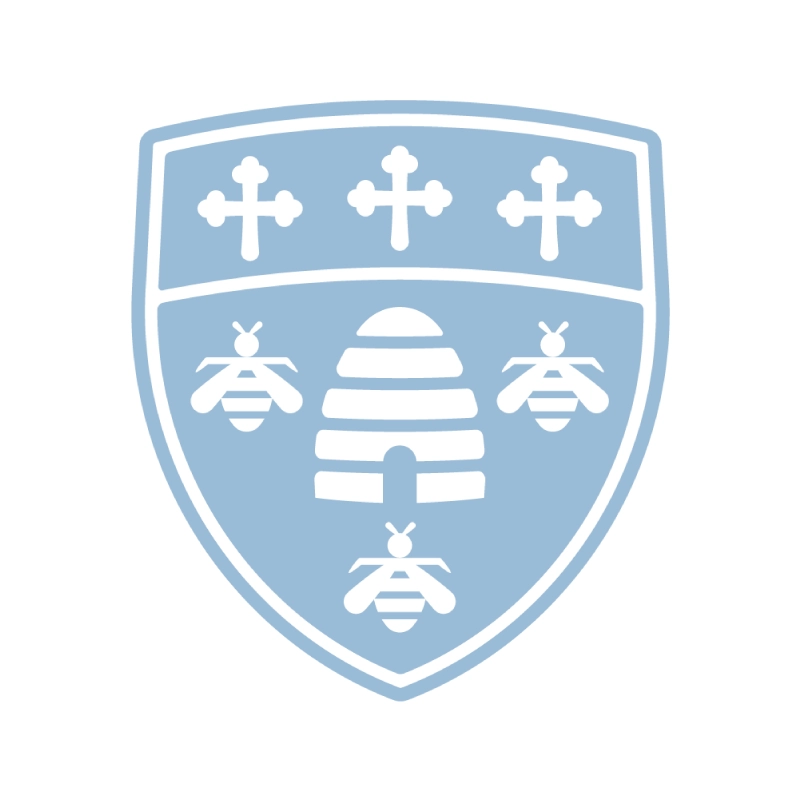As a young athlete recovering from knee surgeries, Sara Haller ’25, ’26 DPT still remembers the physical therapist who helped her return to the sports she loved – his name, what he looked like, and the conversations they shared. The experience was formative.
“I went to physical therapy when I was younger, so seeing what they did and how quickly they helped me get back to the sports I wanted to play really stuck with me,” she said. “I liked that they connected with people and built relationships while helping them get physically better.”
That early impact eventually sparked her decision to pursue physical therapy, and it led her to St. Ambrose University, offering a direct-admission pathway that allows high school students to secure a spot in the DPT program and begin graduate-level coursework during their senior year of college.
“There aren’t many programs like that in the country, let alone close by in the Midwest,” she said. “It’s only five and a half years for a bachelor’s and doctorate, which is pretty impressive. I knew it was the spot for me.”
Accelerated Path, Meaningful Experiences
Haller earned her bachelor’s degree in exercise science in May 2025, overlapping her senior year with her first year of the DPT curriculum. Although the pace was demanding, she says it was manageable and worthwhile.
“If you’re going into a field like this where you’re getting a higher degree, you’re prepared to work hard and take a lot of science classes,” she said. “It was pretty doable.”
Now fully immersed in the program, Haller says the learning environment is one of its strongest components.
“The faculty does a good job acknowledging that we’re students and still learning, but they also hold us to a higher standard because we’re receiving a doctorate,” she said. “By the end, we’re basically their colleagues.”
Her favorite experiences so far have been the program’s early clinical opportunities, where students apply their skills in hospital settings just months into their coursework.
“Last February, after only about five months of school, we spent three weeks out in a hospital,” she said. “You learn a lot and then get to apply it right away. That’s definitely the best part – you get to see what you’re actually going to be doing someday.”
Haller especially enjoyed the pediatrics course and lab. “I’ve always liked kids, so I think it’s fun. They’re super cute when they come into labs,” she said.
Shaped by Compassion and Whole-Person Care
The program’s blend of science, ethics, human behavior and holistic health has helped shape Haller’s understanding of what it means to be a compassionate care provider.
“I think there is importance in taking the philosophy and theology classes,” she said. “It’s not just about science. We’re interacting with humans every day, and with that comes everything else – emotions, feelings, all the heavy stuff.”
A class focused on issues in patient care has been especially impactful. “It’s all the psychosocial aspects, the social determinants of health – everything besides the problem the person comes in with,” she said. “I appreciate that we incorporate all aspects of who someone is.”
Leading and Serving Across Campus
Outside the classroom, Haller serves as president of the Student Physical Therapy Organization, which supports DPT students with service opportunities, social events and community-building.
“We try to create a positive, supportive environment because school can be stressful and busy,” Haller said. “We host events that are inclusive for anyone to participate in, whether that’s trivia, game nights, or going to see a movie.”
Some of her favorite memories come from relationships built across class years. “Spending time with the class above us and the class below us has been really special,” she said. “Those relationships really get you farther.”
Haller is also heavily involved with the Interprofessional Health Clinic, a weekly pro bono clinic that offers free care to underserved patients in the Quad Cities. Students from physical therapy, occupational therapy, speech language pathology, and social work collaborate to treat patients who otherwise may not have access to services.
“It’s a really cool opportunity to work and interact with patients, provide care, and learn in an interprofessional environment,” she said. “It prepares us for the field in ways I don’t think people realize. And it’s student-run, so you learn a lot behind the scenes.”
Haller now serves on the clinic board.
Looking Ahead
After graduation, Haller hopes to serve an underserved population. “There’s a need for that, and these individuals often aren’t provided care,” she said. “Even if it’s just one person, I hope I can make an impact. Just to make someone smile.”
She credits St. Ambrose with shaping both her confidence and her professional identity.
“I was a totally different person coming into college,” she said. “I’ve been able to figure out what success looks like to me. I’ve heard really great things about Ambrose grads, so that makes me excited and confident that this was the right decision.”
Her advice for future students considering the DPT program? “Apply,” she said. “If you can get into the direct admit program, do it. It takes a lot of the stress off. But even if not – still apply. For both undergrad and grad, it’s a great school with a great program. Just do it.”
Start Your Journey in Physical Therapy
Feeling inspired by Haller’s experience? Take the next step toward a rewarding career in physical therapy by applying to the St. Ambrose University Doctor of Physical Therapy program. Your future in compassionate, person-centered care starts here.



